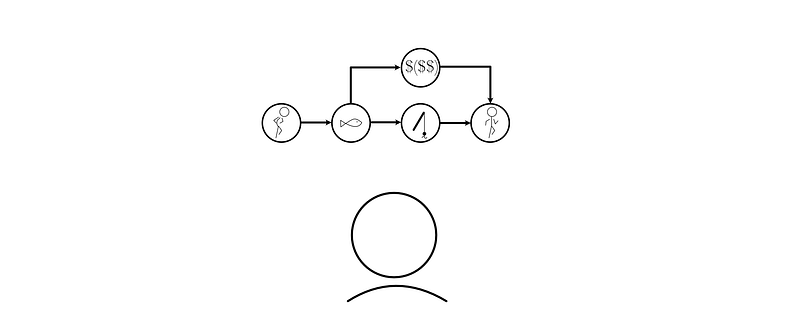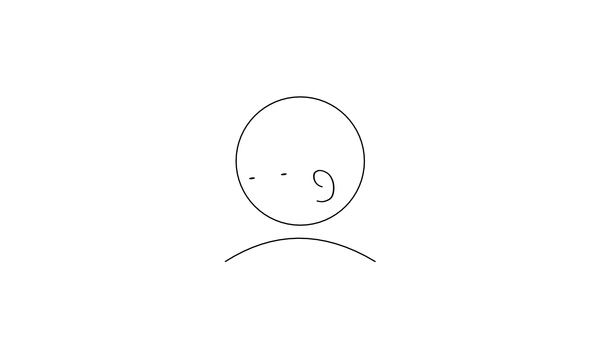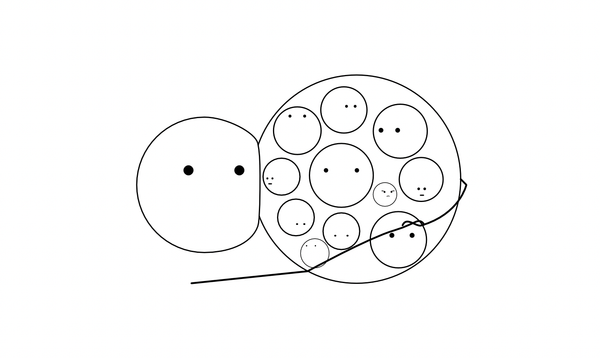Teach a man to fish
What happens if we stop enabling people to learn, and focus on profit-building for a few?

I almost don’t want to use this phrase, because it was such a large part of a certain subculture from my childhood, and I still see it bandied around in similar subcultures. So please: forget the cultural context (this is so very, very unusually for me! I'm usually all about context!!), and focus on the meaning.
give a man a fish and you feed him for a day;
teach a man to fish and you feed him for a lifetime
The underlying concept is an urge to teach people instead of providing for them. There was an insistence, in that long-ago culture, that providing the fish made people lazy, dependent, and a weight on society and your own workaday existence.
The positive side, where we teach: it enables people. Better, every concept a person learns — not by rote, but by doing and finding their way around the inevitable complications — increases the mental models they can turn to in order to understand more concepts. Learning is a gravitational well. Each learned (again, not memorized) field of understanding increases your chances to learn the next.
But there are fundamental problems right now:
- Free market capitalism needs to own that fish to turn a profit. Which means they need to control the fish, the habitat, access to the habitat, and the information and knowledge around fish, fishing, habitat, etc. that could enable someone to learn how to fish. "Fish" also means information now, not just any natural resource!
- Where teaching is proposed, it’s done so behind a paywall — the teacher, in a free market economy, needs to earn a living in order to pay for his own fish, which he knows how to catch but is beyond his grasp because it’s already owned. If the information they understand could benefit someone else in a less controlled situation, the privilege of getting that information needs to be paid for. (yes, this site is a permutation of this)
- We are fast approaching an environment where the teacher needs to only teach the parts that the fish-owners are ok being out in the informational wilds. Controlling the narrative equals controlling the logic to figure out the information gaps. If they can provide a story that all rivers and lakes are poison under the surface (H2O is part hydrogen! hydrogen is key to forming acids! it’s acid down in the depths! (aka, disinformation based on cherry-picked facts)), they can help keep fishing from being figured out from core principals. If they can manipulate the information to also hold that ‘given knowledge’ is that “real fish are only on farms”, even better.
- The one in position to leverage the ‘moat’ for information transference is the one who can hold onto it until/unless the paywall is satisfied: you can’t use the river of knowledge until you pay a toll, which is what genAI is becoming. AKA rent-seeking. It’s further complicated in seeing that it’s rent-seeking because teachers are doing something similar in outcome, but with different motivations and scales of control.
- Anyone who might have provided previous knowledge, information, etc., is left anonymous in the context. In fact, the best way to ensure that rent-seeking is relevant is to provide a loud, repeated, strident/commanding narrative that there is no other (relevant) pathway. This is the only, this is the best, this is the greatest.
Hyperboles are a signal. - In a free market economy, the danger (to the free market capitalist) of someone understanding that food is more than fish — of creativity and building alternative understanding — is real. From their point of view, it is supporting shareholder value to thwart outside creativity and understanding. This is done through bureaucracy, behavioral conditioning, clear “answer” pathways, clear ownership; and then the creative sources controlled, starved out, denigrated, gaslit, and otherwise made unattractive to the general population. When a creative source is found, it needs to be owned by someone else. If a person doesn’t own their own creativity, it does double duty: what creativity emerges does so under an already-owned aegis, and it stifles the possibility of emerging competition by preemptively stating the conditions and parameters of how and where creativity can lead to fish-based survival.
- If someone beats all the odds and produces a profit in non-fish consumable, the goal is to buy that newfound profit center and add to the existing profit base. Anything that can detract from fish-based profit is, necessarily, something to control as fully as fish.
Look around in our business practices, in how genAI is being positioned, in the changes to our government in the past 8 months, and this is where we are. They want to feed us for a day (for profit and control), not enable us. Soon, that day’s “food” will only be provided if we meet certain requirements.
It’s about containment, about being unquestioned — the only answer — in their ability to decide who gets what, for what price.
It’s about leveraging survival as a way to increase profit and control, without accountability and without remorse.
It’s about fundamentally not sharing — the 3 year old who claims ownership to every cookie, and has a meltdown if they are told no, if someone puts the cookies out of reach, if they see another person with a cookie (even if they are already eating one), if they see cookies in a bakery and are told they aren’t theirs, or otherwise knows cookies are somewhere, and not in their control.
So, how do we start shifting the economic system to fundamentally enable people’s learning, without rent-seeking and monopolies? We’ve done it before, and lost it. Do we rebuild it, or learn from what’s happened and shift a little more?
How do we once again focus on teaching, on sharing information? How can we do that without it leading to starvation and while honoring the very real, also-eating people who actually cracked a problem-nut or were otherwise creative?




